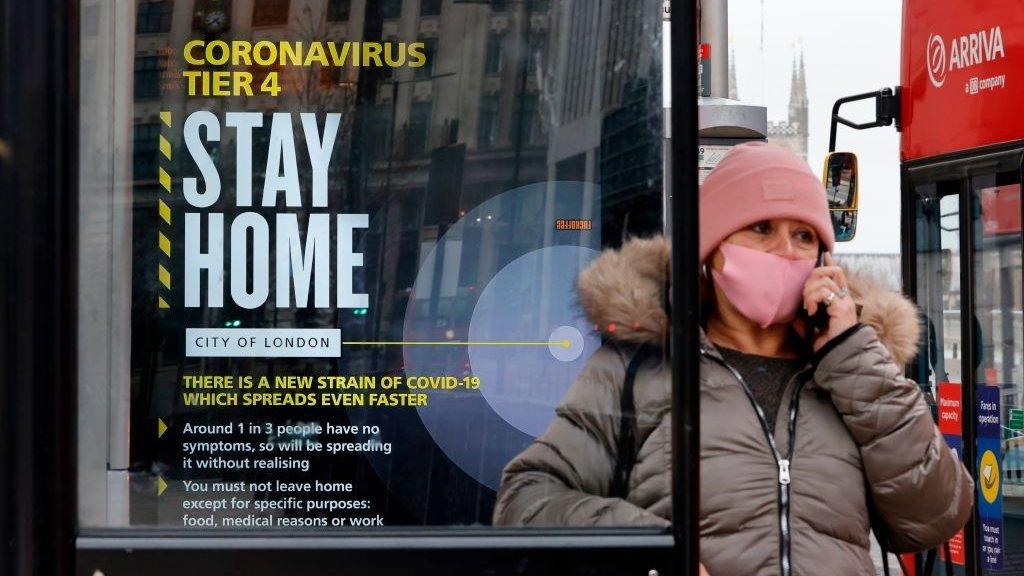Coronavirus: Which areas will reopen schools later?
- Published
- comments
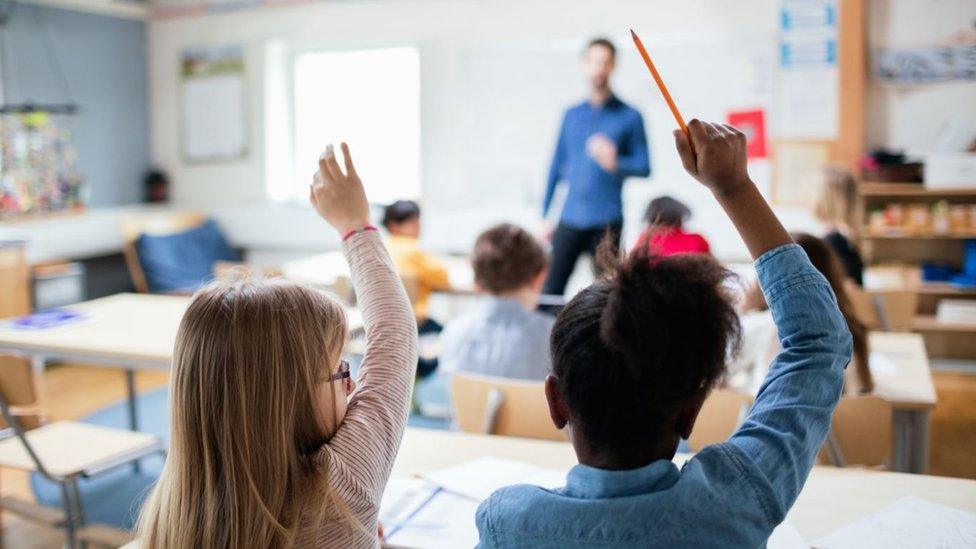
Most of England's primary schools opened on Monday, as the new term begins - but many others have been instructed to close, or have chosen to close - for now.
It's after the government has changed its plans for how schools and colleges in England will reopen after the Christmas holidays.
Prime Minister Boris Johnson has urged parents to send their children back and says schools are safe - although he said the plan would be kept under review.
Why are some schools staying closed and some re-opening as normal?
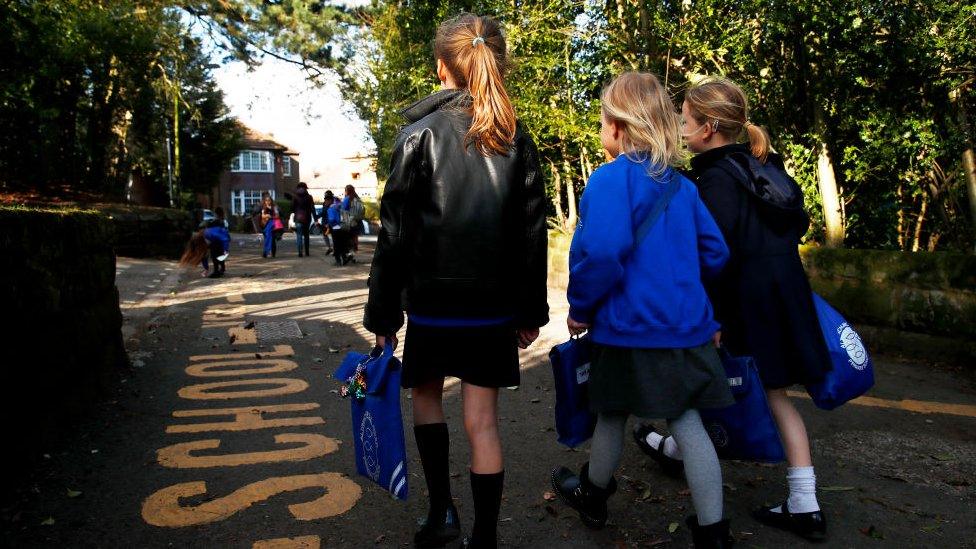
The government said that most primary schools in England were reopening on Monday 4 January, but primary schools in London and some other areas in the south east of England have remained closed.
Pupils in the affected areas will be taught remotely until they're able to return to school for face-to-face education.
But there are also many primary schools in other areas in England that have decided not to open due to the spread of coronavirus or due to not having enough staff available to open the school.
All secondary schools will remain closed to students this week, except for the children of key workers such as NHS staff.
What has the prime minister said?
Prime Minister Boris Johnson said one of his "greatest misgivings was the closure of primary schools" in March last year, and he added that closing them again or postponing their reopening is "a last resort".
Speaking on Monday 4 January, he said: "I would stress that schools are safe and that the risk to kids is very, very small."
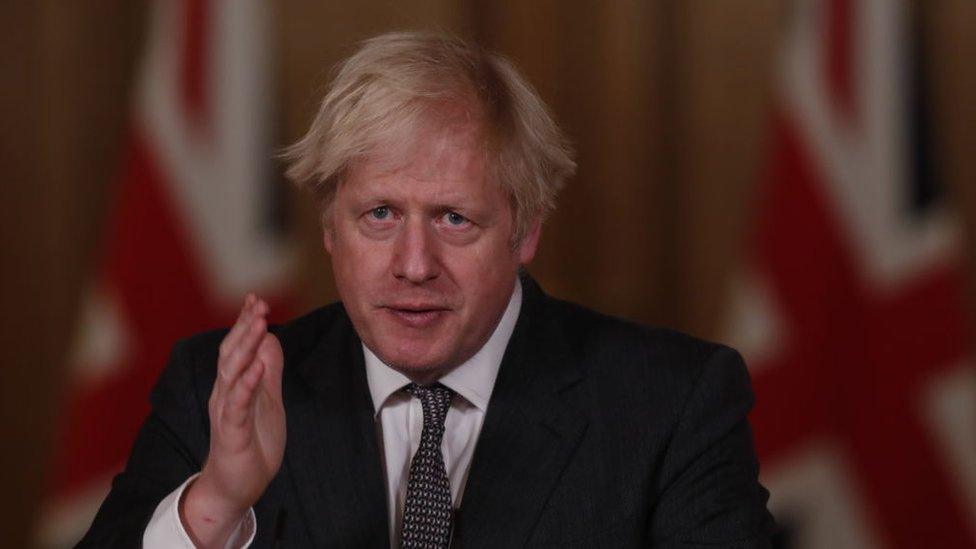
He added: "Obviously we'll do everything we can to protect teachers, but the risk to teachers is no greater than it is to anybody else in any other line of work."
But the prime minister said that some schools had been asked to postpone their return as "the mingling of kids in schools, by putting lots of households together, causes the epidemic to spread even faster", but said they believe this is more of an issue for secondary schools.
Mr Johnson said: "It looks as though secondary schools probably play more of a role in the spread of the epidemic than primary schools, so we'll have to look very hard at what we do with secondary schools later in the month."
Which schools in England are affected?
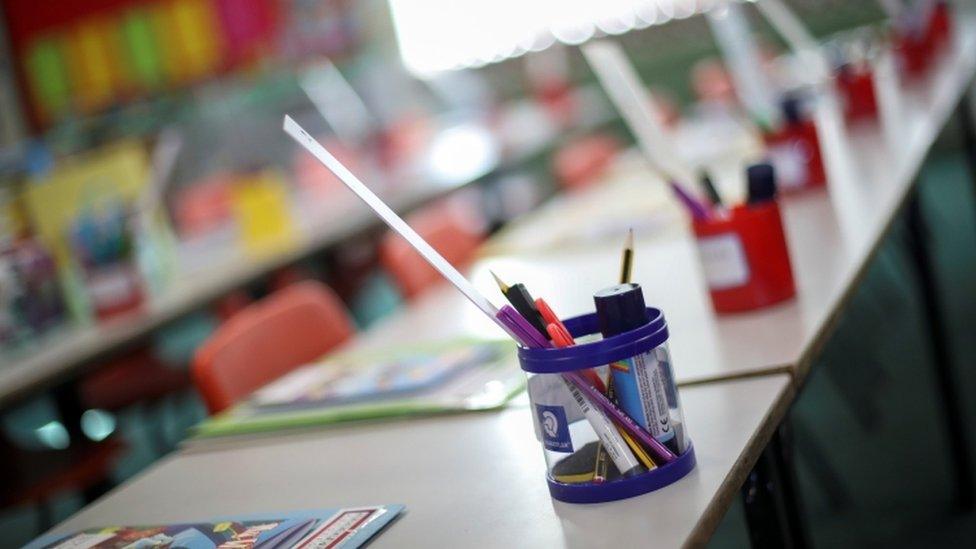
London: Barking and Dagenham, Barnet, Bexley, Brent, Bromley, City of London, Camden, Croydon, Ealing, Enfield, Greenwich, Hammersmith, Hackney, Haringey, Harrow and Fulham, Havering, Hillingdon, Hounslow, Islington, Kensington and Chelsea, Kingston, Lambeth and Lewisham, Merton, Newham, Redbridge, Richmond-Upon-Thames Southwark, Sutton, Tower Hamlets, Waltham Forest, Wandsworth, Westminster.
Essex: Brentwood, Epping Forest, Castle Point, Basildon, Rochford, Harlow, Chelmsford, Braintree, Maldon, Southend on Sea, Thurrock
Kent: Dartford, Gravesham, Sevenoaks, Medway, Ashford, Maidstone, Tonbridge and Malling, Tunbridge Wells, Swale
East Sussex: Hastings, Rother
Buckinghamshire: Milton Keynes
Hertfordshire: Watford, Broxbourne, Hertsmere, Three Rivers
What are teachers and teaching unions saying about the school closures?
Lots of head teachers, teachers and teaching unions - which are organisations which work to protect the rights and interests of teachers - have said the government's decision to keep primary schools closed in certain areas didn't go far enough and was too last minute.
The decision to reopen primary schools is being challenged by some local authorities, and there have also been calls for teachers to be prioritised for the vaccine to keep them safe and increase the likelihood of schools staying open.
The National Education Union, which represents lots of teachers, says the government should delay the opening of ALL schools to help stop the spread of the virus and to protect teachers. It has called for teaching to be moved online for the first two weeks of term.
The Trades Union Congress (TUC) - the umbrella body for UK trade unions - has also warned about the difficulties for working parents trying to balance work and childcare, and says these parents should be put on furlough while schools are closed in England.
Ministers said closures were a "last resort" and education was a priority. The Department for Education has said decisions on school closures and openings were based on new infections, positivity rates, and pressures on the NHS.
Gavin Williamson says he wants school closures to be "as short as possible". The measures the government has put in place will be kept under review and will be looked at again by 18 January.
In Wales, local councils have been told they can be "flexible" on deciding when schools open.
The government has said the majority of students will learn remotely before returning to classrooms by 11 January. A full return to the classroom is expected to be completed by 18 January.
In Northern Ireland, primary school pupils will be taught online until the 11 January.
In Scotland, new lockdown rules from 5 January mean schools will remain closed to most pupils until February at the earliest, with teaching happening online and remotely.
What about secondary schools and colleges?
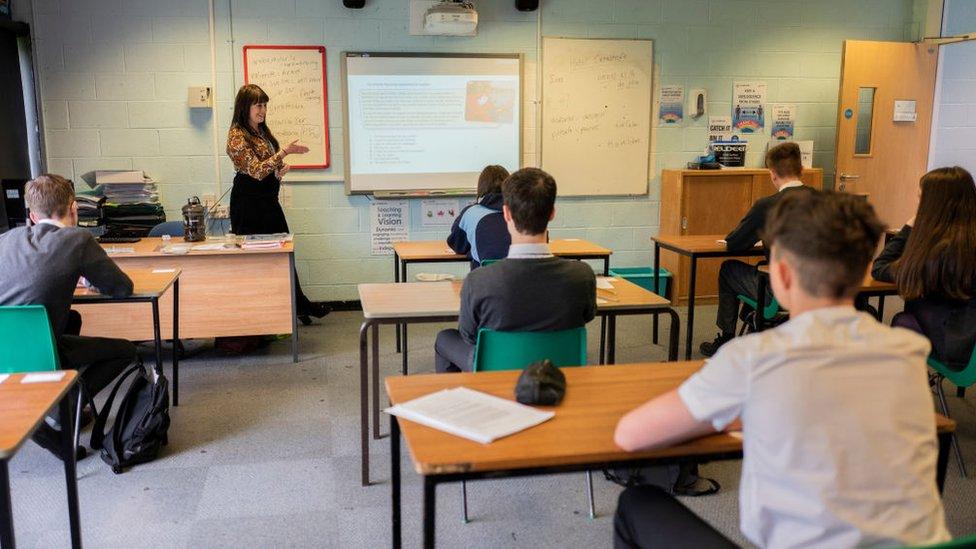
Secondary school and college pupils won't return to the classroom full-time until 18 January
Mr Williamson also said secondary school students will make a staggered return to school, with all secondary and college pupils returning full-time on the 18 January.
It's because the infection rate is higher among older pupils and the delay to schools reopening will give the government more time to ensure it can properly roll out testing for pupils and staff.
Members of the armed forces will be assisting schools in setting up the testing.
The education secretary said all pupils in exam years will return during the week beginning 11 January, with the majority coming back to school in the following week.
Secondary schools and colleges will only be open to vulnerable children and children of key workers from next week.
Some secondary schools and colleges in England with very high infection rates will not open at all in January.
In areas affected, face-to-face education will continue for only exam-year pupils, vulnerable children and children of critical workers.
Other students will learn from home remotely.
- Published4 January 2021
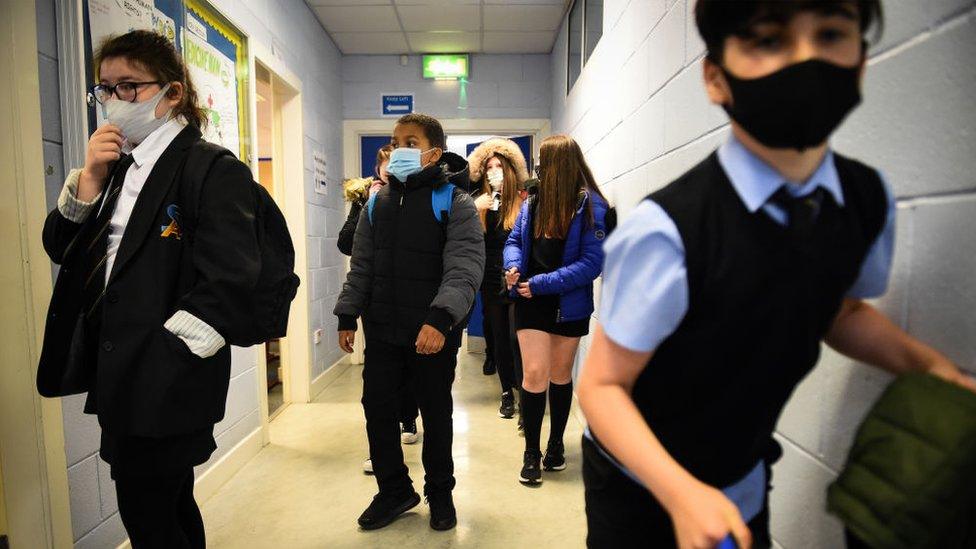
- Published3 January 2021
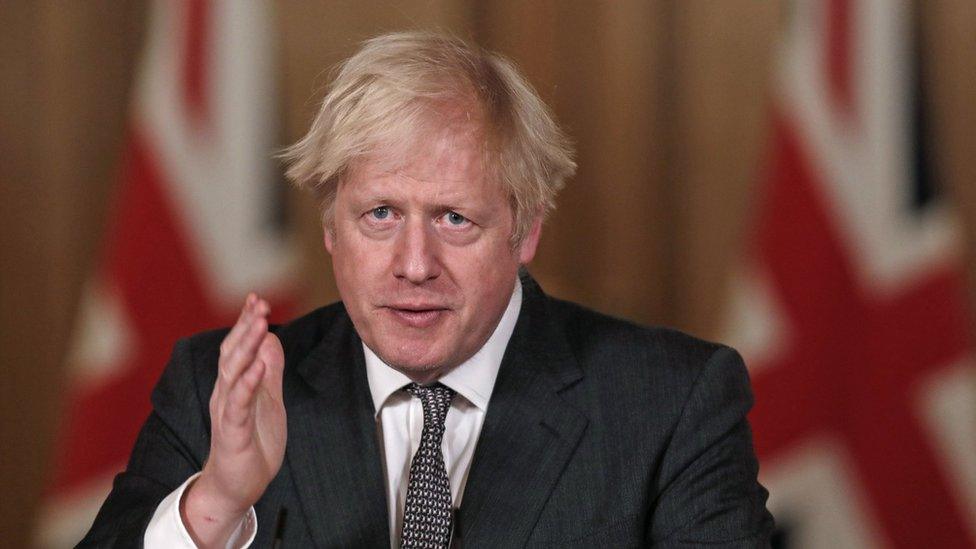
- Published30 December 2020
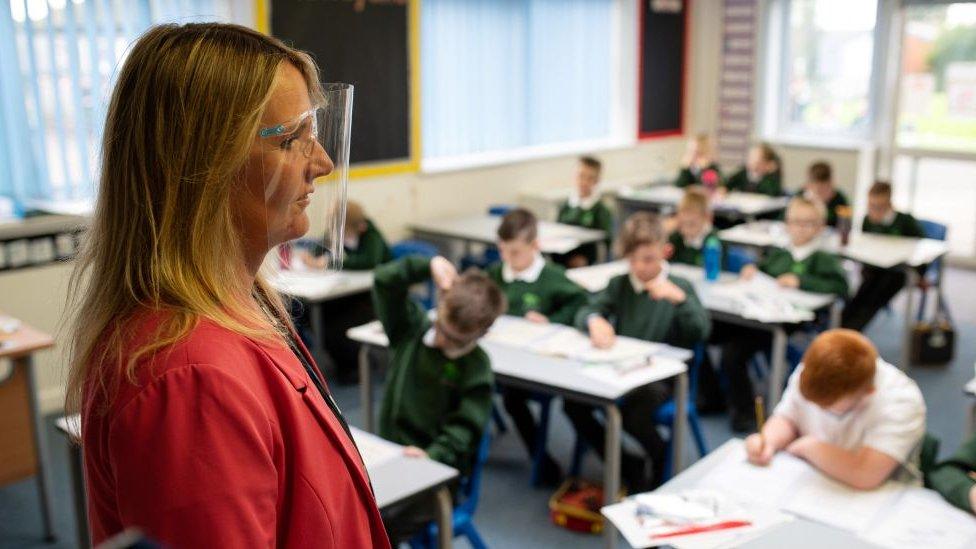
- Published29 December 2020
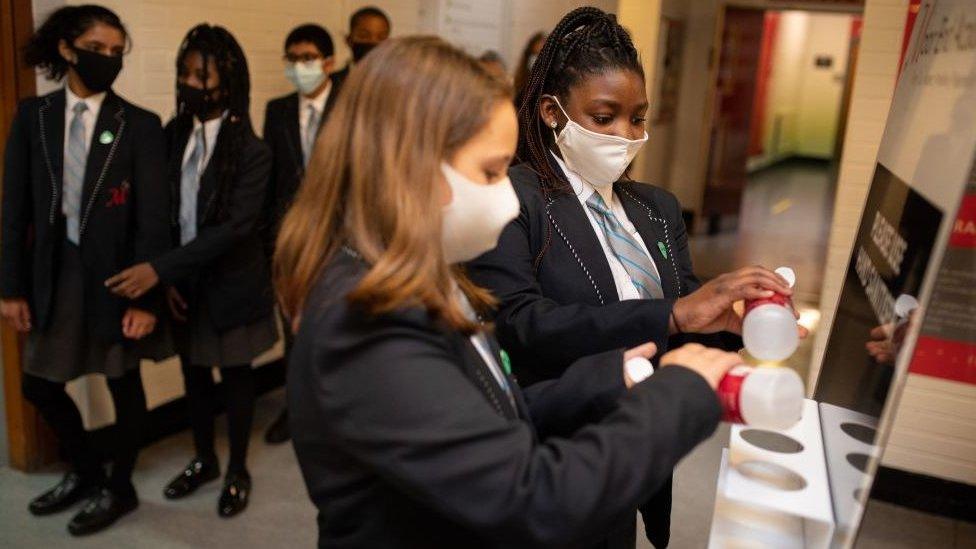
- Published31 December 2020
